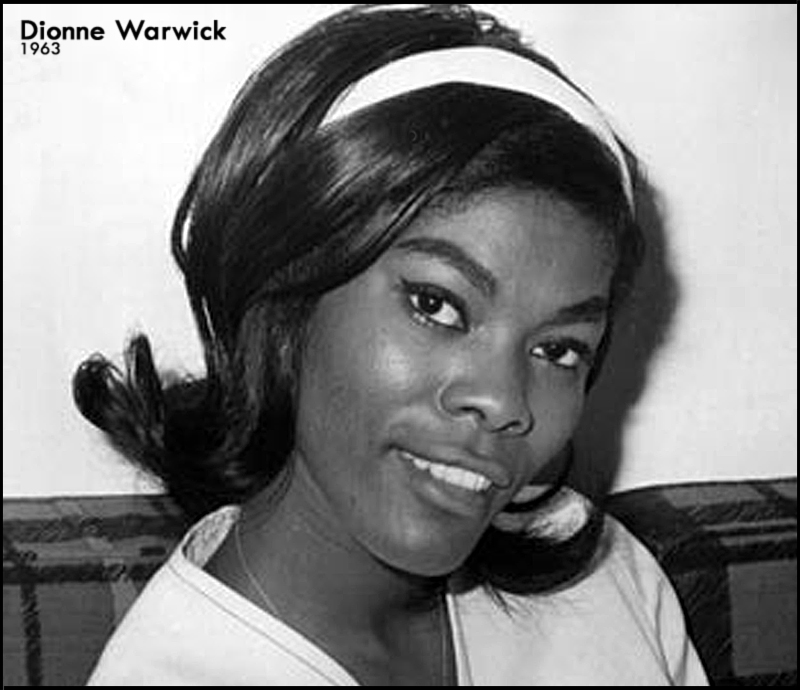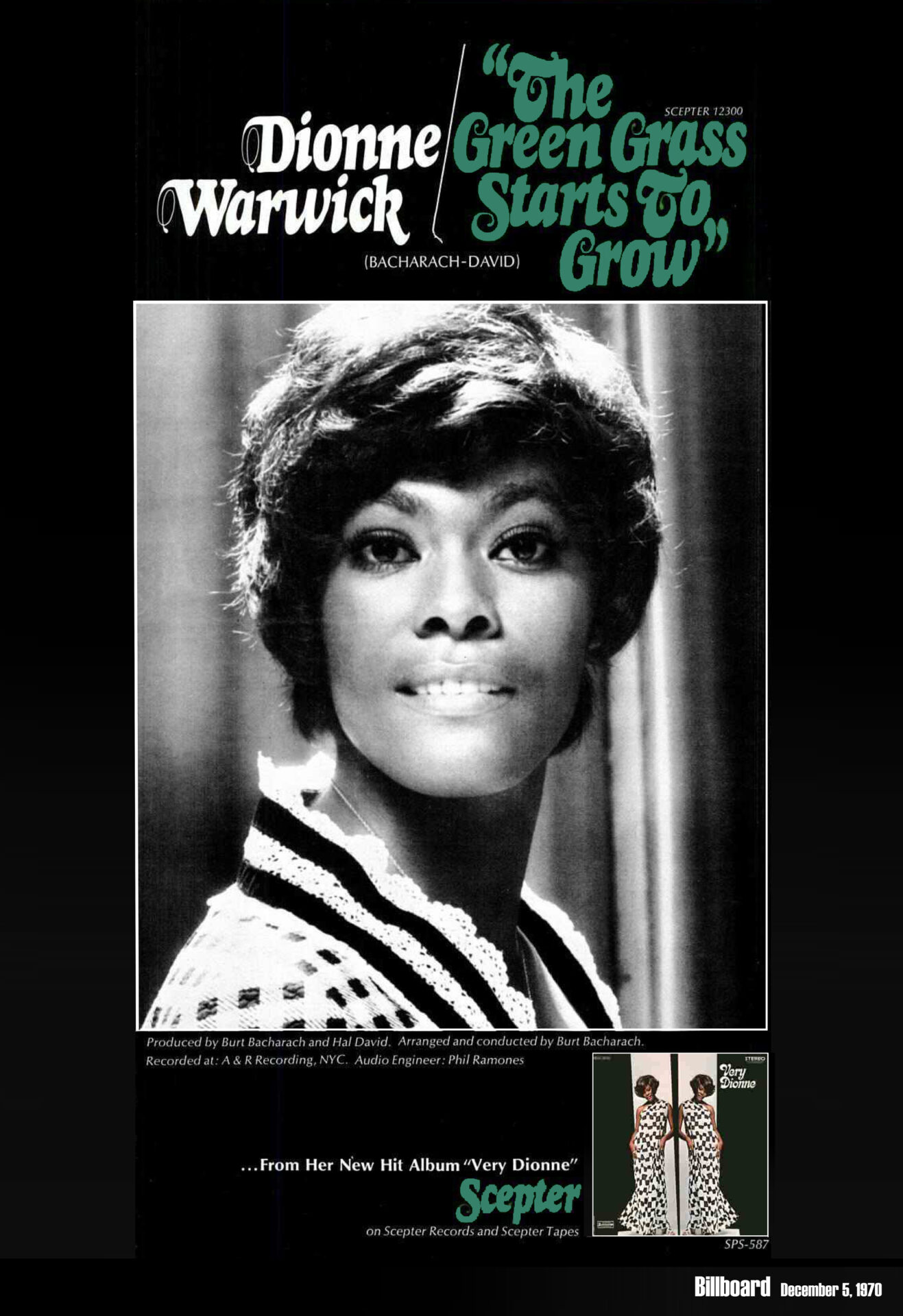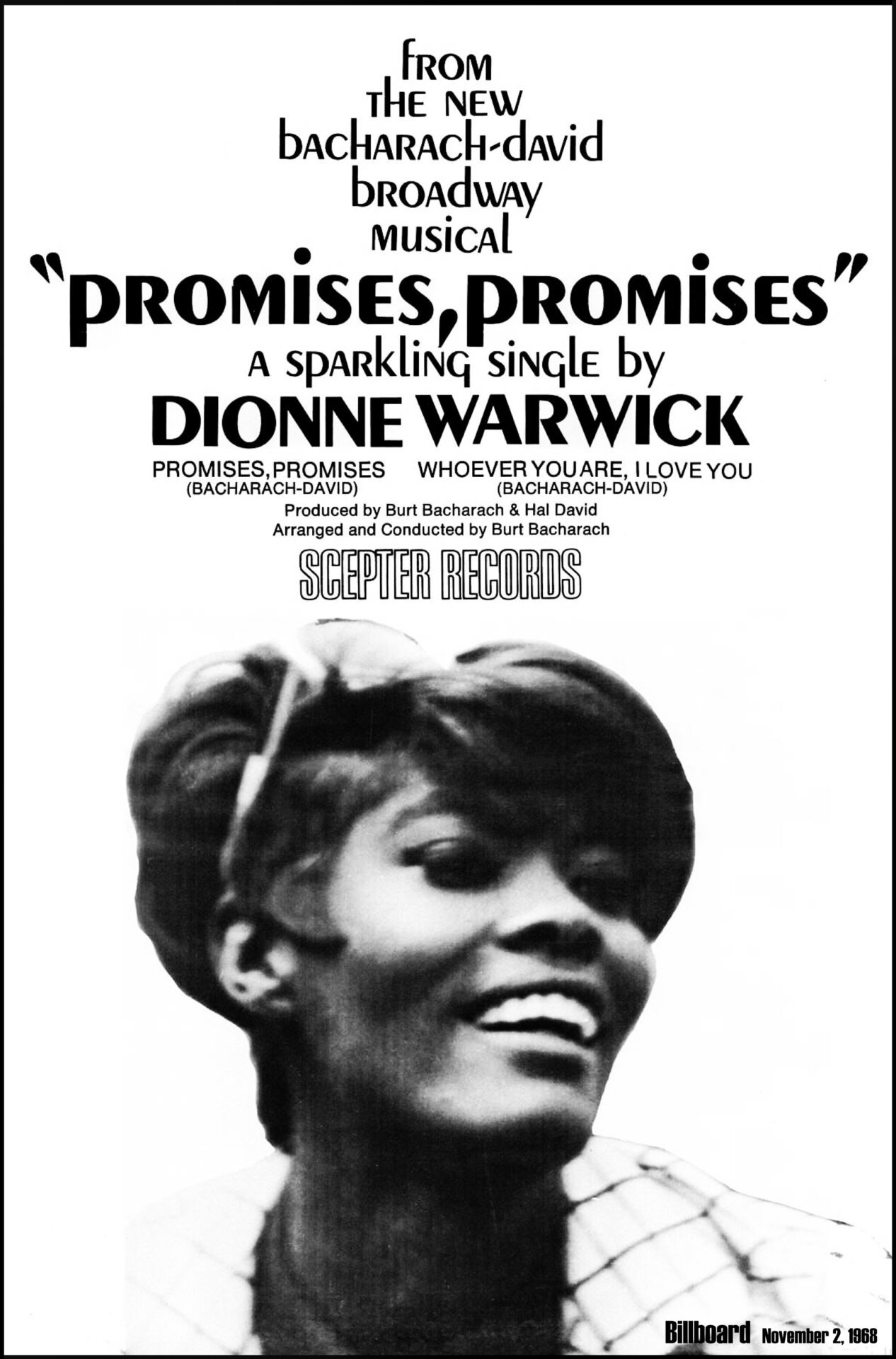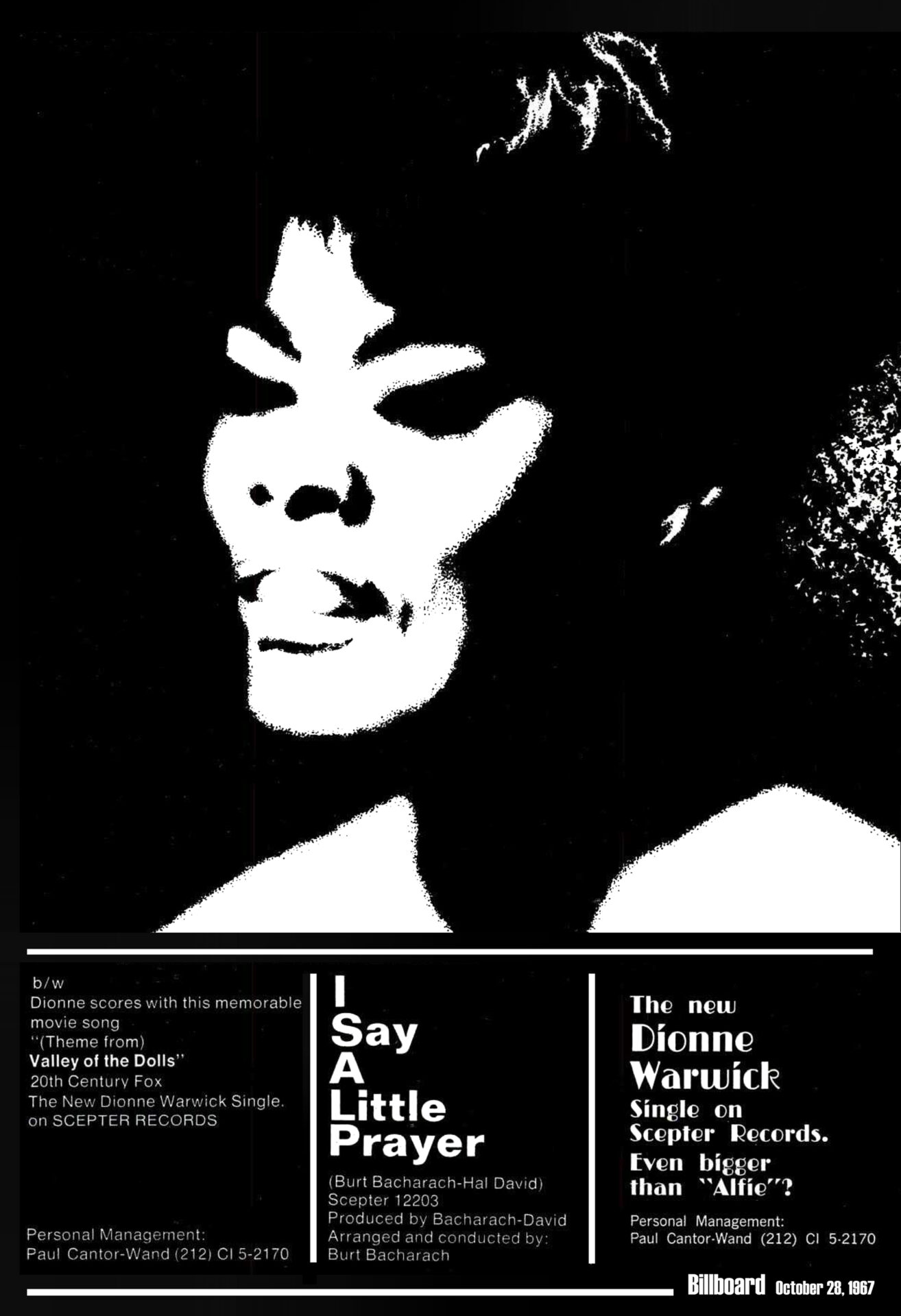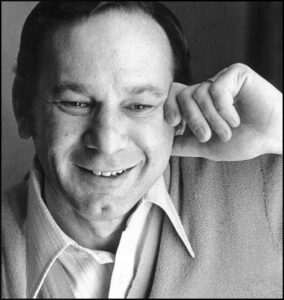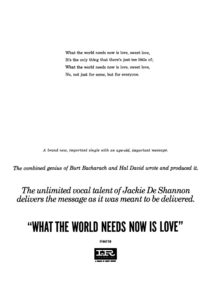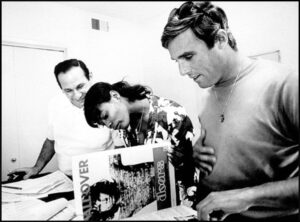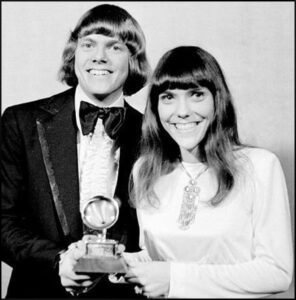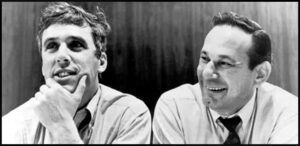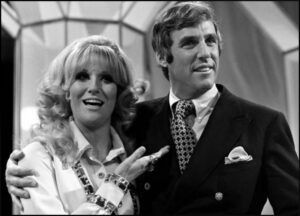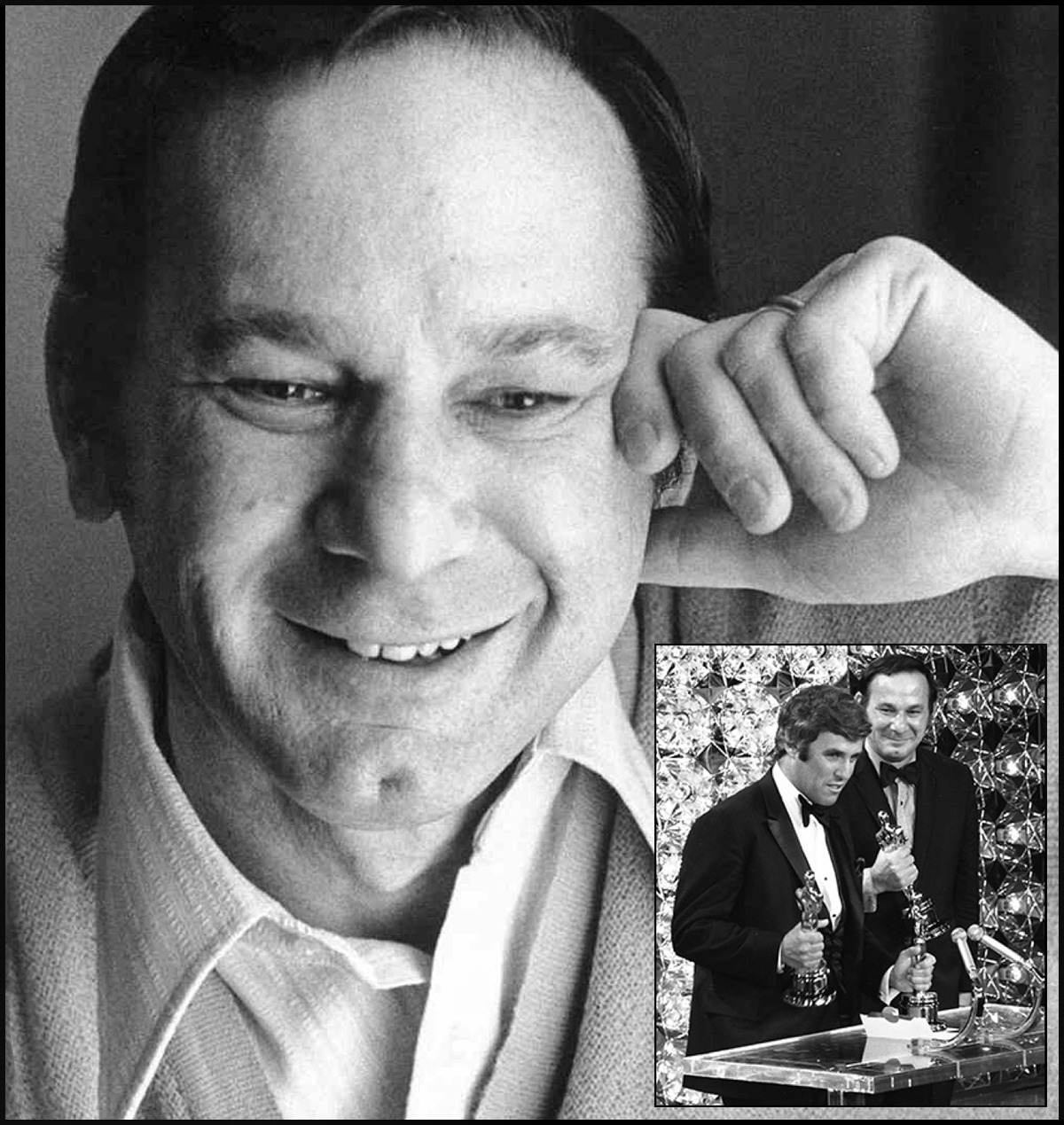 Combination of her emotional style and Bacharach and David’s dramatic material has led to a memorable string of hits
Combination of her emotional style and Bacharach and David’s dramatic material has led to a memorable string of hits
 Is there a new wave of R&B singers carrying the ball today? The increasing legion of fans being picked up along the way by slim, svelte, pretty Dionne Warwick might well advance this thesis.
Is there a new wave of R&B singers carrying the ball today? The increasing legion of fans being picked up along the way by slim, svelte, pretty Dionne Warwick might well advance this thesis.
Miss Warwick, of East Orange, N. J., has the same roots that many other R&B-oriented pop stylists have today, namely, the church. But somehow, there is a new element involved, not only in the relatively sophisticated delivery, but in the material she sings. Her songs are largely the work of Burt Bacharach and Hal David, a pair of ASCAP pop writers who make their headquarters in the offices of Famous Music in the Brill Building, informally known as the capitol of Tin Pan Alley.
This in itself is a switch from the expected, since this team has written such pop hits as “Wives And Lovers” and “Love With the Proper Stranger.” It’s interesting to note too, that Bacharach and David just recently have brought their intense and dramatic wares to Maxine Brown, (“I Cry Alone”) a singer strongly identified with the more popular connotation of R&B performance and material, with somewhat the same kind of classy sound that’s come to be expected of Miss Warwick.
Dionne Warwick herself gives another clue to her own new direction in her open admiration for the vocal class of Nancy Wilson. “I think she is absolutely fabulous,” she said recently. “And I think Etta James is one artist who has never reached the level she should have. She has so much to offer. With the fellows, I would take Sinatra and Sammy Davis Jr. What can you say? They speak for themselves.
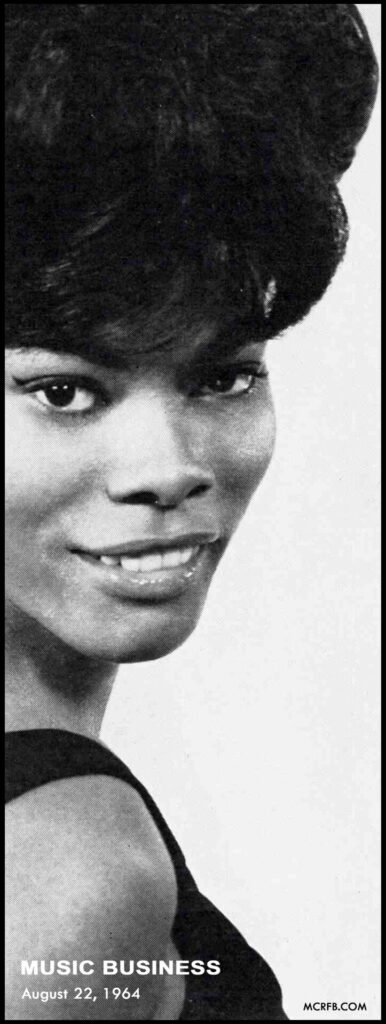 “As far as the newer people go, Dusty Springfield wins by a mile, for my money.
“As far as the newer people go, Dusty Springfield wins by a mile, for my money.
She is too much! What a talent. I know Burt (Bacharach) and Hal (David) are writing for her now too, and I’d say she did pretty well with her first by them, “Wishin’ And Hopin’.”
Only recently, Dionne was selected to be the featured singer at the Cannes Film Festival, a rare distinction for an artist so relatively new in the business. Just two years ago, she was singing in the Newark, N. J. recording studios of Savoy Records as part of a group.
“I was with my aunts and uncles in a gospel song group. We called it the Drinkard Singers. We sang a lot of gospel on records for Savoy and later we used to work as a background vocal group with people like Sam ‘The Man’ Taylor. That was about two years ago when I was 21.
“Then I began doing more background and less gospel singing. I was in New York singing on a date with the Drifters when they cut ‘Mexican Divorce.’ My sister, Dee Dee, was on the date with me too. She was doing the background melody and I was singing top, but for some reason, Burt Bacharach, who was conducting the date, heard me. I must have been singing too loud. Anyway, he asked me to do some demos of his songs and that’s how it started.
“Burt and Hal manage me now along with the Wand Management company at Scepter Records. I think I’ve gotten a good start on records. After all, it’s only been about a year as a soloist. I’d like to do some stage roles, maybe on Broadway if I’m good enough. But I really don’t know when I’ll ever get a chance, the way my schedule looks. I’ll be in Europe a great deal of the time between now and the end of the year, doing concerts and night club work.
“I know I’ll find a few friends in Europe, but I hope I won’t be losing something I’ve been able to build back home. That would be a great tragedy. But I’ve done enough recording recently to keep the company well supplied while I’m gone. I hope they’re all hits.”
As Dionne has said, she’s going to be mighty busy making the European scene. Important things are on tap after she gets back too. But that won’t be until around next Thanksgiving. She left Friday (July 31) to start her almost four months of junketing.
Her line-up includes four days of solo concerts in the south of France, six days at the Casino in Knokke, Belgium; another six days in Ostend; and from August 21 to September 17 she’ll do an extended series of concerts and television dates throughout the continent and in North Africa.
On September 20, there will be a date on Britain’s “Sunday Night at the London Palladium” TV show and then she moves immediately across the Channel to Paris’ famed Olympia Theater, where she’ll costar with a top French singer until October 13. On October 14, she does another TV special in London and then goes on a tour of the United Kingdom until November 23.
“When she returns from Europe, we plan to have her do an album of standard songs,” said Paul Kantor, head of Wand Management. “We’ll also be working on material for her to do in her club act. We’re planning big things for Dionne, believe me.”
Speaking of class, the girl whose consecutive hits include “Don’t Make Me Over,” “Anyone Who Had a Heart,” “Walk on By,” and now the two-sided “You’ll Never Get to Heaven” and “A House Is Not A Home,” also picked up a nice mention in Vogue Magazine last month, in that publication’s “People Are Talking About” department. END
_______________
Information, credit, and news source: Music Business, August 22, 1964
![]()

